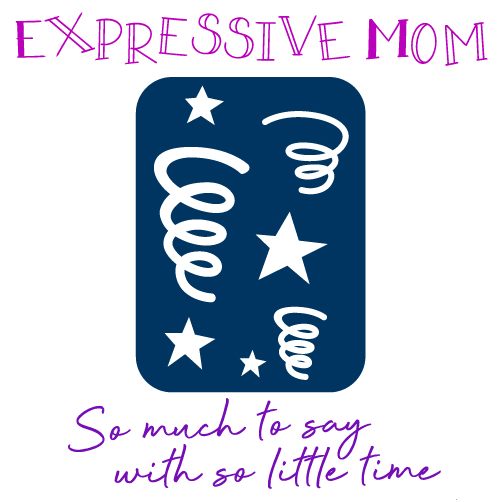
Image courtesy of Stuart Miles at FreeDigitalPhotos.net
If you are a parent of a child with autism or that has any other special needs, you certainly understand how it is to be in other parents shoes who are going through the same thing.
You will go through a grieving process because of being faced with the very possible reality that your dreams that you may have had for your child may never manifest (however at the same token miracles are known to happen and you never want to set the bar too low for your child). You will be saddened by the fact that your child who has autism may never hold a lengthy conversation. There is a significant chance that he or she will not get married, drive a car, graduate from university, go into a fulfilling career or even be employable for that matter. At the same time, you will be facing the fact that your child will be needing very expensive therapies that will exhaust your bank account, your time, energy and you in every way or form. These therapies will likely help your child evolve and become somewhat independent later on. However, there is still a great deal of uncertainty and anxiety about that as well.
You will be constantly wondering what will happen to your child when he or she becomes an adult. Even with ABA therapy, occupational therapy, speech and language therapy he or she receives during the early years may never guarantee independence. It will certainly help increase the odds, but by how much? No one will ever know until that time comes. You will at some point also be preparing yourself for having to keep your autistic adult child at home for good, until you are too old to care for him or her. If you have other children that are typically developing, they will have to be the ones to take over the care of their sibling with autism. You may at this point have accepted that your dreams for your child with autism have had to change because of the reality that he or she has.. autism.
However, you also don’t like the idea of him or her ever living in a group home. Even if you accept that, you don’t even want to look into that option because of hearing about how bad the wait lists are. Friends and family members may make you feel guilty for even thinking about sending your child with autism off to live in a group home as well. Then you decide that it is best for you to give up the life you want to live so you can take care of your child with autism for as long as you physically can. Yep, not only have you had to give up your dreams for your child, but you have given up your dreams for yourself.
I want to take this opportunity to list the pros and cons about you caring for your child with autism for life.
Pros– hmm there are none.
Cons– Read up. There are only cons with this as far as I am concerned. In fact, I have no idea where to start. I need to start with something, so here it goes.
You may think that you are horrible and selfish for even thinking about sending your child off to a group home or assisted living once he or she reaches the age of majority. However, let’s face this reality. Caring for an adult child with special needs is far more challenging than caring for a child with a disability. Not to mention there is support around for families caring for children that have disabilities. However, not so much for families caring for adult children. Let’s also get into something more on the dark side, that you will probably not want to admit once you get to this point because you will think it is just wrong. However, listen up and accept the fact that you are human and will experience all emotions under the Sun.
When you hear of your peers enjoying their lives after their adult children leave the nest, and they are living a similar life to the one they had, and that you had before having kids- you are going to be very envious of them. You will feel that jealous feeling at the pit of your stomach when you hear they are able to travel several times a year, or they can go out whenever they please without having to worry about babysitting or respite care. It is really going to get to you. That envy will eventually translate into you feeling nothing but resentment towards your adult child who is still and will be under your roof for a long, long time. Your freedom is very limited, and you are still living the type of life that a parent of a school aged child lives… at 60 years old!
If you think that is bad, how are your typically developing adult children going to feel once they see you are aging, and they will not only have to worry about your care, but their sibling’s care? They are going to be dreading that day when you are too feeble to take on the responsibility and that the responsibility will be shifted onto them!
What is also going to happen if you have to end up caring for an aging parent while trying to care for your adult child with special needs at the same time? Being in the middle of that sandwich will definitely make anyone feel quite squished.
Let’s get into something more dark than this. Your nerves will become so frayed at some point that you may just have no choice but to kick your disabled adult child out onto the streets! A social worker once told me that this scenario happens everyday! If you think you are guilty for wanting to send your child off to a group home when he or she becomes an adult, how will you feel after you dump him or her in the middle of no where- unable to defend him or herself? I don’t even want to go there!
That being said, let’s move the focus away from how bleak your future will look, and let’s see how the child will be affected. Unless the individual has very little cognitive ability- he or she knows a lot as it is that he or she is different from peers. Many older teenagers with autism or other disabilities have expressed that this takes a beating on their self esteem. Many have a deep desire to make the most of their lives and be as independent as they can. They are going to want to work, make some kind of contribution to society- and live away from home one day! They are not going to want to live under your roof forever, especially due to the fact that they have special needs. They would prefer to live in a group setting while they are living their own lives at the same time. Even if the individual is very dependent by choice, how will keeping him or her home for good help with further development? Not only is your life going to be negatively affected by this, however it is extremely disempowering for your adult child.
I realize you are probably thinking to yourself while reading this I want my child to live his or her own life, and I certainly want to enjoy my empty nest one day but the waiting lists for group homes and assisted living are too long, what else can you possibly suggest?
There is good news. Because of the increasing numbers of children born with autism and other disabilities, there is only so long that people can bury their heads in the sand. The Canadian government is trying to find ways to make waiting lists for group homes and assisted living facilities less. However, there is only so much that can be done since it is an overwhelming situation. And who says we need to rely on the government for everything? Sometimes we as parents need to step in and take matters into our own hands.
What many parents of teenage kids with special needs are doing now, the ones who understand this reality inside and out are banding with 3 or 4 other parents in their situation- looking into pitching in for a home for their adult children. That is right. When their children are in their teens, parents meet other parents in the same situation. The teens meet other teens like them, who could potentially be their housemates. They need this time to plan things out, understand the legalities, and to make sure that their kids will get along! They will share a home, live their own lives, some may live on disability, some may have jobs, and will be checked on by social workers to make sure they are managing their personal affairs. Some kids will have more needs than others. Some will require more care than others. You will know more at this point of how much or how little help your kid will require. If funds are short to even pitch in, create a GoFundMe or Indigogo campaign. That is going to be something I am likely going to do closer to the time my son is 16!
It is best to put some money into a tax free mutual fund so it can grow (thankfully the markets are doing quite well now) for this purpose. Open up an RDSP for your child, and contribute what you can each year so the government will match it up.
By the way, just because your child has autism or some other disability does not mean that you have to set the bar too low. Sure, there is a chance your child could be 100% independent as an adult, or get married, or end up living with someone by a choice of their own. However, when you do have a child with special needs, the future is even more uncertain and odds are they will always need help with something. You need to be realistic about those odds. Planning for their future is essential, not to mention this will lighten your anxiety of what will happen to them when they grow up.
This way, they will live away from home and be as independent as they can be, your typically developing kids can live their own lives and not have to worry about them either. And you will be able to enjoy your freedom after the nest is empty!
My son with autism may be only 10, and he may surprise us but odds are he will need assistance of some sort through out his life. Since I am aware of this possibility, I can plan as much as I can. He has an RDSP set up. He will apply for disability just in case he cannot get or keep a job. I am saving money for a house that he may share with others (or if it is not enough, like I said I will look into crowdfunding). He is too young to meet others for this purpose now, but time does fly. We will know more of how well he will be able to do on his own by the time he is 16. I would love to create a cause for this purpose. If anyone would like to brainstorm ideas with me, I definitely welcome that.



Connect With Me !